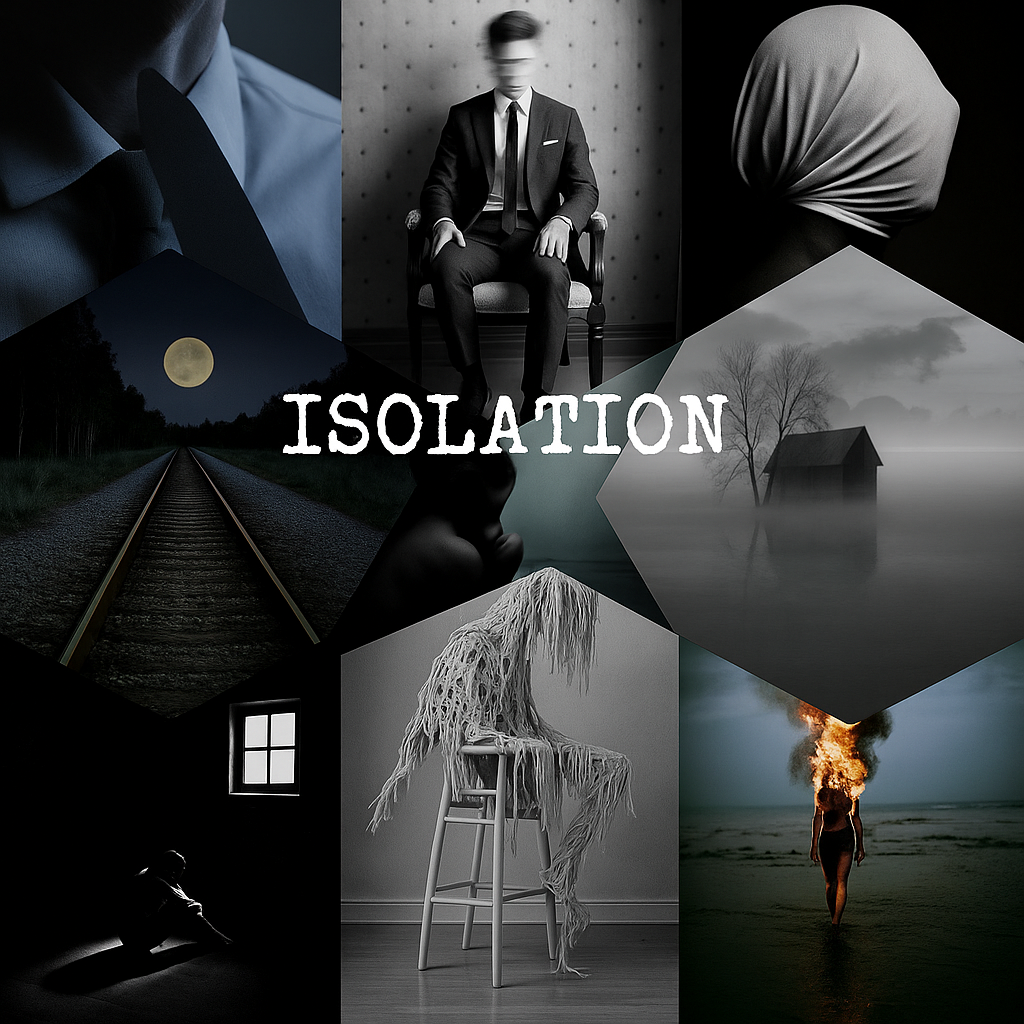Brotherhood in Place of Isolation
By Dr. Keith M. Waggoner
The Problem
Every man fights battles that most of the world never sees. He works, he provides, he endures, but inside he feels the slow erosion of connection. He may succeed in business, yet come home to a house where conversation is shallow and loneliness lingers. He may sit in a crowded church pew, yet feel completely unknown.
Women see it. Wives feel the distance when their husbands grow quiet. Children feel the absence when their fathers withdraw. Daughters wonder why Dad seems burdened and unavailable. Sons learn to mimic the silence.
And women have their own battles. Many long for meaningful friendship with other women, but are trapped by comparison, gossip, or shallow surface talk. They crave sisterhood that strengthens instead of criticizes. At the same time, they carry another invisible weight: what happens to them when the men they love have no strong brotherhood. When their husbands, fathers, and brothers drift alone, the family feels it in ways words cannot capture.
This quiet epidemic leaves both men and women vulnerable. Men long for depth but settle for distraction. Women long for a partner they can lean on, but instead carry the strain of his isolation.
A Story That Could Be Yours
Sarah was exhausted. She loved her husband, Mark, but she felt like she was carrying him. He worked hard, but he had no close friends. He came home, ate dinner, and collapsed in front of a screen. She tried to talk to him about his struggles, but he shut down.
“I feel like I am the only one pulling him forward,” she told me. “I want a husband, not another son to manage.”
Mark’s story is not unusual. On the outside, he was steady. He had a good job, a decent house, and a polite smile. On the inside, he was hollow. No circle of brothers. No men to sharpen him. No fire to ignite him. His wife carried the weight of his disconnection and it was crushing her.
Then Mark came to UM1. For the first time in years, he locked eyes with other men who refused to let him drift. He sweated, he fought, he spoke truth, and he listened. In three days, he discovered something he had been missing for decades: belonging. Sarah later said, “I feel like I finally have my husband back.”
This is not just about men. It is about families. When a man regains brotherhood, the ripple touches everyone he loves.
The Three Transformations Every Man Needs
1. Brotherhood Protects
The lone wolf myth is a lie. Wolves in the wild do not thrive alone. They die early.
Men without brotherhood are more vulnerable to depression, addiction, burnout, and premature death. Harvard’s 80-year study confirms it. Strong relationships are the single most important predictor of health and long-term happiness.
How I coach this, step by step
-
Shared challenge builds trust. At UM1 we put men through physical exertion, symbolic trials, and strategic exercises. Hard work together triggers oxytocin and trust chemistry, making bonds that form in hours instead of years.
-
Frame the cost. I have men write down one consequence of their isolation on their marriage, their children, and their work. This puts urgency on the table.
-
Anchor one protective ritual. Each man chooses a brother to check in with three times a week. Calls, texts, or voice notes. Three minutes each. It is not about length, it is about presence.
Scientific and psychological premises
Social baseline theory shows that the brain literally perceives threats as smaller when close connection is present. Brotherhood lowers stress load and gives resilience.
Case Study – David
David admitted he was drinking more alone at night. His wife was worried. We paired him with two brothers for weekly check-ins. Within two months his drinking dropped by half. His wife reported, “I see light in his eyes again.”
2. Brotherhood Sharpens
Without friction, metal dulls. Without other men, a man excuses mediocrity.
When a man has no brothers to sharpen him, his wife becomes the only voice challenging him. That voice is often met with defensiveness. Resentment builds. Intimacy fades. But when men sharpen men, women get to breathe again. Children get to see their father rise. Families get to thrive.
How I coach this, step by step
-
Name the dull edges. Each man identifies one place where he has grown lazy. Fitness, faith, fatherhood, or finances. We call it out.
-
Issue the sharpening call. Another man is tasked with confronting him in that area. Not shaming, but challenging. “Brother, you are better than this.”
-
Track the sparks. We set one measurable behavior to change each week. Example: lift weights twice, take wife on one date, or pray with kids at bedtime. Sparks of action sharpen the edge.
Scientific and psychological premises
Self-determination theory shows that men thrive when they experience autonomy, competence, and relatedness. Brotherhood delivers all three at once.
Case Study – James
After his divorce, James had no one to speak truth into his life. At UM1 he met three brothers who refused to let him shrink. They gave him weekly challenges. One was to call his son daily. Thirty days later, the habit was set. His journal no longer read “I failed my family.” It read, “I am rebuilding my legacy.”
3. Brotherhood Lasts
Casual friendships fade. Brotherhood forged in fire endures.
Many men have coworkers, golf buddies, or casual acquaintances. Few have true brothers. Brotherhood is marked by shared challenge, shared language, and shared responsibility.
How I coach this, step by step
-
Shared language for depth. We use archetypes. Beast, King, Saboteur, Sage. Instead of asking “How is work?” we ask, “Where is your Beast winning? Where is your King asleep?” This language makes honesty normal and safe.
-
Fire Teams for accountability. Each man joins a group of three to five. They meet weekly for thirty minutes. Faith, family, fitness, and finances. One commitment reviewed, one new commitment set. A blessing spoken over the group.
-
Proof of life rhythm. Daily two-minute message in the group thread. One gratitude, one action completed, one ask for support. This rhythm prevents drift and provides visible accountability.
Scientific and psychological premises
Oxytocin bonds are reinforced through shared struggle. Identity-based habits stick when reinforced by group belonging.
Case Study – Brandon
Brandon confessed he had not had a close friend in over ten years. At UM1 he joined a Fire Team. Two years later they still meet weekly. They launched a nonprofit together. Brandon says, “Brotherhood saved my marriage and gave me purpose again.”
The Outcome
Men like Mark, David, James, and Brandon came into coaching and events weary, isolated, and on the edge of collapse. They walked out with brotherhood that protects, sharpens, and lasts.
Their wives noticed. Their children noticed. Their businesses and churches noticed. Because when a man finds brotherhood, everyone wins.
This is what happens when men stop hiding and start connecting. This is what happens when women no longer carry the burden of being the only one trying to pull their man forward. This is what happens when a man steps into Undisputed Mastery.
The Invitation
Your time is now. Brotherhood is not a luxury. It is survival. It is strength. It is legacy.
Watch the video and join us at undisputedmastery.com. Step into the fire of UM1 – Becoming Champions and discover what life looks like when you belong to a circle that will not let you fall.
If you are ready for personal coaching that implements these exact steps for your life and business, reach out today. The next season can be stronger than the last. The work starts now.

